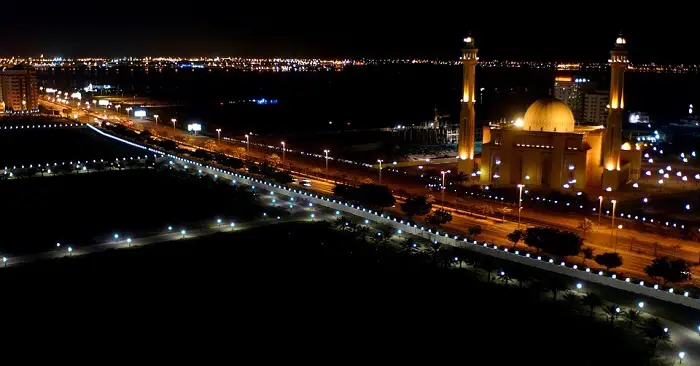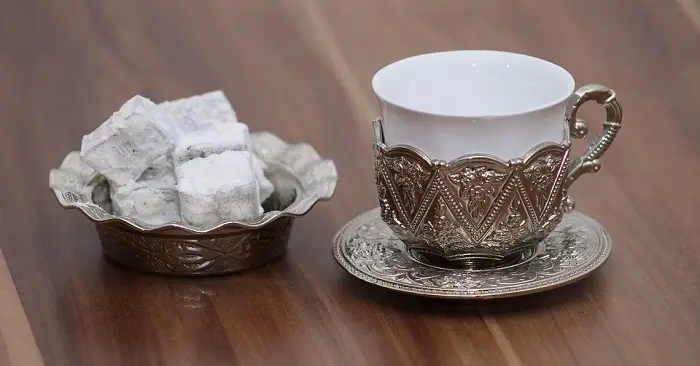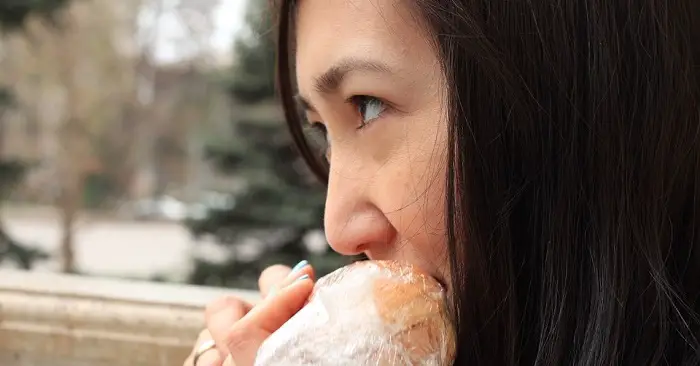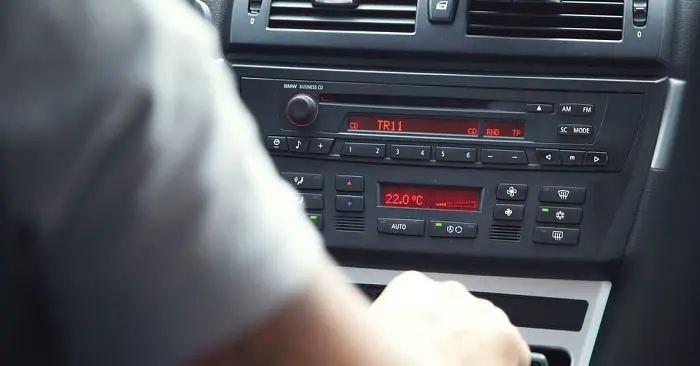Ramadan is now being observed by Muslims all over the world, including Bahrain. It is the most important month of the Islamic lunar calendar, as it commemorates the time when the Qu’ran was first revealed to the Prophet Muhammad. It is also a period of fasting, reflection, and giving.
During the month of Ramadan, Muslims wake up before sunrise to have “suhoor,” a pre-fast meal. They then refrain from eating, drinking, chewing gum, and smoking throughout the day. When the sun sets, they take part in a meal known as “iftar.”

Ramadan is the holiest month for Muslims, who fast from dawn to dusk and engage in spiritual activities. The start and end of Ramadan depend on the sighting of the new moon. Ramadan 2023 in Bahrain is expected to begin on Wednesday, March 22, and end on Friday, April 21.
During this month, Muslims in Bahrain enjoy a serene atmosphere of kinship, charity, and spirituality. They break their fast with traditional dishes such as thareed, harees, and ghouzi, and share free iftar meals with others in mosques or tents. Ramadan is a time of celebration and gratitude for Bahrainis.
How to Celebrate Ramadan in Bahrain
If you are planning to visit Bahrain during Ramadan 2023, you might be wondering how to experience this holy month in the kingdom. Bahrain is a diverse and tolerant country that welcomes visitors of all faiths and backgrounds. You can enjoy the rich heritage, cuisine, and festivities of Ramadan in Bahrain while respecting the customs and etiquette of the local people.
Here are some tips on how to celebrate Ramadan in Bahrain:
Enjoy the traditional food
Ramadan is a time for fasting and spiritual reflection, but it is also a time for feasting and celebration. In Bahrain, many traditional foods are associated with Ramadan. These foods are often rich and hearty, and they are meant to provide energy and sustenance to those who are fasting. Here are some of the most popular traditional foods during Ramadan in Bahrain:
- Balaleet: This is a sweet vermicelli dish that is often eaten for breakfast during Ramadan. It is made with vermicelli noodles, eggs, sugar, and cardamom, and it is usually served with a side of hot tea.
- Luqaimat: These are small, deep-fried dough balls that are served with a drizzle of honey or syrup. They are a popular dessert during Ramadan and are often shared with friends and family.
- Harees: This is a savory dish made with cracked wheat, meat (usually lamb or chicken), and spices. The ingredients are simmered together until they form a thick, porridge-like consistency. Harees is a hearty dish that is often eaten for iftar (the evening meal that breaks the fast).
- Samboosa: These are small, triangular pastries that are filled with spiced meat or vegetables. They are often served as an appetizer during Ramadan and are a popular snack for iftar.
- Machboos: This is a spicy rice dish that is typically made with chicken or lamb. The rice is cooked with a blend of spices, including cumin, coriander, and turmeric, and is often served with a side of salad or pickled vegetables.
- Jareesh: This is a thick porridge made with crushed wheat and meat. It is often eaten for suhoor (the pre-dawn meal) as it provides a lot of energy and sustenance to those who are fasting.
These traditional foods are an important part of Ramadan in Bahrain. They are meant to nourish and sustain those who are fasting, and they are often shared with friends and family as a way to celebrate the holy month.
Experience the girgaon
Girgaon (also spelled Gergaoon or Gurgaon) is a festive event that takes place on the 14th day of Ramadan, the holy month of fasting for Muslims. It is part of the Bahraini heritage and culture, and it involves children dressing up in traditional clothes and going around their neighborhoods to collect sweets, nuts and coins from their neighbors, while singing special songs. The event is also celebrated with music, activities and gifts at different locations across Bahrain . Girgaon is a way of sharing joy and generosity during Ramadan.
On this night, children dress up in traditional clothes or costumes and go around their neighborhoods singing songs, knocking on doors and collecting sweets and chocolates from their relatives and neighbors. The streets are decorated with colorful lights and lanterns while music plays from speakers.
Girgaon is a fun way to celebrate Ramadan with kids while learning about Bahraini culture.
Visit the historical sites
Bahrain is a country with a rich history that dates back thousands of years. During Ramadan, there are many historical sites that visitors can explore to learn more about the country’s past and the role of Islam in shaping its culture. Here are some of the must-visit historical sites during Ramadan in Bahrain:
- Bahrain Fort: Located in the heart of Manama, the Bahrain Fort is a UNESCO World Heritage Site that dates back to the 3rd century BC. The fort has been an important site for Islamic civilization and played a significant role in shaping the history of the region.
- Al Khamis Mosque: This is one of the oldest mosques in Bahrain and is believed to date back to the 7th century. It is an important historical site for Muslims and visitors can explore the mosque and learn about its rich history.
- Barbar Temple: This is an ancient temple that dates back to the Dilmun civilization, which existed in Bahrain more than 4000 years ago. Visitors can explore the ruins of the temple and learn about the religious beliefs and practices of the Dilmun people.
- Beit Al Quran: This is a museum that showcases the history of Islam and its role in shaping Bahrain’s culture. Visitors can explore the exhibits and learn about the Quran, Islamic calligraphy, and the development of Islamic art.
- Arad Fort: Located in Muharraq, Arad Fort is a historic site that dates back to the 15th century. Visitors can explore the fort and learn about its role in protecting Bahrain from invaders.
Mosques to Visit during Ramadan in Bahrain
During Ramadan, Muslims visit the mosques to pray and participate in special worship services. Most mosques are open for visitors during this time, and visitors can learn about the history of Islam by exploring these sacred sites. The following mosques are popular destinations for tourists visiting Bahrain during Ramadan.
- Al Fateh Grand Mosque: This is the largest mosque in Bahrain and can accommodate up to 7,000 worshippers at a time. During Ramadan, the mosque hosts daily Taraweeh prayers and is known for its beautiful architecture and intricate designs.
- Al-Khamis Mosque: This is one of the oldest mosques in Bahrain and is a popular destination for visitors during Ramadan. The mosque dates back to the 7th century and is known for its unique architecture and beautiful decoration.
- Ahmed Al Fateh Islamic Center: This is a modern mosque located in Juffair and is known for its beautiful dome and minarets. During Ramadan, the mosque hosts daily Taraweeh prayers and is a popular destination for worshippers.
- Isa Town Mosque: This mosque is located in the Isa Town area of Bahrain and is known for its traditional Bahraini architecture. During Ramadan, the mosque hosts daily Taraweeh prayers and is a popular destination for worshippers and visitors alike.
- Al-Mabarrah Al-Khalifia Mosque: This is a historic mosque that dates back to the 18th century and is located in the heart of Muharraq. During Ramadan, the mosque hosts daily Taraweeh prayers and is known for its beautiful architecture and rich history.
Celebrating Iftar during Ramadan in Bahrain
Iftar is the evening meal that Muslims have to break their fast during Ramadan. It is a time for family, friends, and the community to come together and enjoy a delicious meal. In Bahrain, Iftar is a special time of the day and is celebrated with great enthusiasm. Here are some things to keep in mind while celebrating Iftar in Bahrain:
- Dates and water: Traditionally, Iftar is broken with dates and water. This is because the Prophet Muhammad (PBUH) used to break his fast with dates and water. In Bahrain, you will find dates and water being served at almost all Iftar gatherings.
- Traditional Bahraini food: Iftar is a time when families and friends come together to share a meal. In Bahrain, traditional Bahraini food such as machboos, thareed, and balaleet are often served during Iftar. These dishes are not only delicious but also have a rich cultural significance.
- Iftar tents: Iftar tents are a popular tradition in Bahrain during Ramadan. These are large, air-conditioned tents that are set up in various locations around the country to provide a place for people to break their fast at sunset. Here are some of the things to know about Iftar tents in Bahrain:
- Location: Iftar tents are usually set up in public places such as parks, community centers, and hotels. Some popular locations for Iftar tents in Bahrain include Adliya, Seef, and Muharraq.
- Timing: Iftar tents are usually open about half an hour before sunset and close around midnight. It is important to check the timing of the Iftar tent beforehand, as it may vary depending on the location.
- Food: Iftar tents in Bahrain offer a wide variety of traditional Bahraini and Middle Eastern dishes, such as rice dishes, grilled meats, and salads. Desserts such as dates, sweets, and Arabic coffee are also usually served.
- Entertainment: Many Iftar tents in Bahrain offer entertainment such as live music, traditional dance performances, and henna artists. Some Iftar tents also have areas for children to play and enjoy themselves.
- Cost: Iftar tents in Bahrain may charge a fee for the food and entertainment provided, while some may be free of charge. It is best to check beforehand if there is a fee and how much it is.
Many hotels and restaurants in Bahrain set up Iftar tents during Ramadan. These tents offer a unique experience where you can enjoy a variety of traditional dishes in a festive atmosphere. Some popular Iftar tents in Bahrain include the Ramadan tent at The Ritz-Carlton Bahrain, Al Areen Palace & Spa, and The Gulf Hotel Bahrain.
- Charitable giving: Ramadan is also a time for giving and charitable acts. Many Bahraini organizations and individuals use Iftar as an opportunity to give back to their community. You may find Iftar gatherings organized by charitable organizations or mosques that serve food to the less fortunate.
- Etiquette: While celebrating Iftar in Bahrain, it’s important to be respectful of local customs and etiquette. Dress modestly, be punctual, and avoid smoking or consuming alcohol in public during Ramadan.
Celebrating Iftar in Bahrain is a unique and special experience that brings together family, friends, and community. Whether you are in a traditional Bahraini home or at an Iftar tent, the hospitality, and warmth of the Bahraini people make it a truly memorable experience.
Where do Muslims Celebrate Iftar in Bahrain?
Here are some of the most popular places to celebrate Iftar in Bahrain:
- Mosques: Many mosques in Bahrain offer free Iftar meals during Ramadan. This is a great way to break the fast with members of the local community and to experience the religious traditions of Ramadan.
- Ramadan Tents: During Ramadan, many hotels and restaurants set up tents that offer Iftar meals. These tents provide a festive atmosphere and often have live entertainment, making them a popular choice for families and groups of friends.
- Home: Many Muslims in Bahrain choose to celebrate Iftar at home with their families. This is a more intimate setting and allows families to break the fast together and share in the blessings of Ramadan.
- Street Iftar: In some areas of Bahrain, people set up tables and distribute food to those who are fasting. This is known as “street Iftar” and is a way for people to come together and share the blessings of Ramadan with others.
- Charity Events: During Ramadan, many charity organizations in Bahrain host Iftar events to raise funds for those in need. These events provide an opportunity to give back to the community while enjoying a festive meal.
There are many places in Bahrain where Muslims can celebrate Iftar during Ramadan. Whether you choose to celebrate at a mosque, a Ramadan tent, at home, or at a charity event, the most important thing is to share the blessings of Ramadan with your family and friends.
What to Expect during Ramadan in Bahrain
As expats living in a Muslim country, it is important for us to know what to expect during Ramadan. Here are just some of the things that you may notice during this period:
- Most businesses and government offices will have shorter operating hours, around 8am to 2 pm only.
- Some shops will be closed during the day, but will be open at night until early morning.
- Cafes and restaurants will be closed during the day.
- Licensed restaurants will not be serving alcohol; nor will they be playing music or entertainment during this month.

How to Behave during Ramadan
Meanwhile, it is also important for us to know how to behave during Ramadan. Here are some guidelines on what to DO during this time:
DO… dress appropriately. Ladies should cover their shoulders and knees, whereas men should wear long trousers and long sleeves when out in public.
DO… use greetings such as “Ramadan Kareem” and “Ramadan Mubarak,” which indicate blessings and prosperity for the recipient.

DO… donate food, money, or clothes to charity. Almsgiving is a significant part of Ramadan.
DO… accept invitations to Iftar. This would be a great opportunity for you to learn more about Muslim culture and tradition. Remember to bring a small token or gift for your host!
On the other hand, here are some guidelines on what NOT to do:
DON’T… eat, drink, chew gum, or smoke in public. This includes inside your car, as this is considered here as a public space. Remember that your Muslim friends and colleagues are fasting, so you should be considerate of their practice.

DON’T… hug or kiss in public. Actually, this rule applies all year round, but it is especially more important during Ramadan.
DON’T… play loud music in your house or inside your car. Remember that Ramadan is a period of reflection and prayer for Muslims.
DON’T… use offensive words or gestures. You shouldn’t be using offensive words or gestures at all anytime, but this becomes even more important during Ramadan.

As you can see, Ramadan is a solemn period of fasting, prayer, and reflection. Muslims observe it with great humility and diligence, and so should we. Let us remember to dress appropriately and behave accordingly, to express our respect for their beliefs and customs.
Other Ways to Celebrate Ramadan in Bahrain
Ramadan is a significant time for Muslims in Bahrain, but that doesn’t mean that non-Muslims cannot participate in the festivities. Here are some activities that non-Muslims can partake in during Ramadan in Bahrain:
- Visit the Ramadan Night Market: The Ramadan Night Market is a popular attraction during Ramadan in Bahrain. It is a bustling market that offers a wide range of products such as clothes, jewellery, food, and beverages. Visitors can enjoy shopping, eating, and socializing with friends and family.
- Bab Al-Bahrain Night Market: This market is located in the heart of Manama and offers a range of traditional and cultural products.
- The Market 338: This is an outdoor market located in Adliya, featuring local vendors selling handmade crafts, jewelry, clothing, and food.
- The Ramadan Night Market at Bahrain International Exhibition & Convention Centre: This market offers a wide range of products, including fashion, accessories, home decor, and food.
- Bahrain Bayan School Charity Bazaar: This market is held annually during Ramadan and offers a variety of handmade crafts, food, and games.
- The Ramadan Tent Market at Four Seasons Bahrain Bay: This market features local artisans and craftsmen selling traditional goods, such as pottery and textiles, alongside food stalls serving traditional Ramadan cuisine.
- Al Quds Night Market: This market is located in the Seef area and offers a range of products, including clothing, accessories, and food.
- Attend Ramadan Lectures: Many mosques and community centers in Bahrain organize lectures during Ramadan. These lectures focus on various topics related to Islam and offer an opportunity for visitors to learn more about the religion and its practices.
- Volunteer at a Charity: Ramadan is a time for giving back to the community, and there are many charities and organizations in Bahrain that welcome volunteers during this time. Visitors can help with food distribution, organize events for children, or offer their time and skills in other ways.
- Attend an Iftar Party: Many hotels and restaurants in Bahrain organize Iftar parties during Ramadan. These events offer a chance to break the fast with a variety of traditional and modern dishes, as well as socialize with friends and family.
- Participate in a Cultural Tour: Bahrain has a rich history and culture that dates back thousands of years. Visitors can take a cultural tour during Ramadan to learn more about the country’s heritage and explore historic sites and landmarks.
There are many ways to celebrate Ramadan in Bahrain beyond fasting and praying. Visitors can enjoy shopping, attend lectures, volunteer, attend Iftar parties, or participate in cultural tours to immerse themselves in the spirit of Ramadan.
Video: AMERICAN EXPAT LIVING IN BAHRAIN: MY FIRST RAMADAN! | What I’ve Learned & What You Should Know
In this video, the vlogger shares her personal experience of visiting Bahrain during Ramadan, and how it changed her perception of Islam and Arabian culture. The vlogger admits to having little knowledge about Islam prior to her stay here and had never heard of Ramadan before arriving in Bahrain. However, she quickly learned about the significance of Ramadan, and how Muslims around the world observe it.
The vlogger talks about her observation of the sacrifice and dedication of the local people during Ramadan, and how she was moved by the sharing of meals to break the fast. She also draws a parallel to her own experience of fasting leading up to Easter in their Catholic upbringing, and how she came to appreciate the act of fasting as a celebration of faith.
The vlogger encourages travelers to learn more about Ramadan and Arabian culture before visiting the Middle East, especially if they plan to visit during Ramadan. She expressed gratitude to the people of Bahrain for sharing their culture with her and ended the video by wishing everyone a Ramadan Kareem.
Frequently Asked Questions
1. What is Ramadan?
Ramadan is the ninth month of the Islamic lunar calendar, during which Muslims around the world fast from dawn to sunset. It is considered a holy month for Muslims and is a time for spiritual reflection, prayer, and charitable giving.
2. When does Ramadan begin and end in Bahrain?
The beginning and end of Ramadan depend on the sighting of the moon, so the exact dates can vary from year to year. In 2023, Ramadan is expected to begin on April 2nd and end on May 1st.
3. Do non-Muslims have to fast during Ramadan in Bahrain?
No, non-Muslims are not required to fast during Ramadan. However, it is important to be respectful and considerate of those who are fasting and avoid eating or drinking in public during daylight hours.
4. What are the working hours during Ramadan in Bahrain?
During Ramadan, working hours for most businesses and government offices in Bahrain are reduced. Typically, offices open later in the morning and close earlier in the afternoon to accommodate those who are fasting.
5. Are restaurants open during Ramadan in Bahrain?
Yes, restaurants are open during Ramadan in Bahrain, but they may have restricted hours during the day and may only serve food after sunset. Some restaurants may also have special Ramadan menus or Iftar buffets.
6. What is an Iftar tent?
An Iftar tent is a large, air-conditioned tent that is set up during Ramadan to provide a place for people to break their fast at sunset. Iftar tents are usually located in public places such as parks, community centers, and hotels.
7. Can tourists visit mosques during Ramadan in Bahrain?
Yes, tourists are usually allowed to visit mosques in Bahrain during Ramadan. However, it is important to dress modestly and remove shoes before entering the mosque.
8. What is Eid al-Fitr?
Eid al-Fitr is a religious holiday that marks the end of Ramadan. It is celebrated with feasting, gift-giving, and other festivities. The exact date of Eid al-Fitr can vary depending on the sighting of the moon, but it is typically celebrated for three days in Bahrain.
Final Thoughts
Ramadan is a significant time for Muslims in Bahrain and is observed with great reverence and devotion. It is a time of spiritual reflection, self-discipline, and generosity, where people come together to break bread and share meals with their loved ones and communities. Through the act of fasting, Muslims practice self-control and cultivate a deeper connection with their faith. The month of Ramadan provides an opportunity for people of all backgrounds to learn more about Islamic culture and traditions, and to appreciate the importance of kindness, compassion, and empathy toward others. As the holy month of Ramadan approaches, let us all join together in the spirit of unity, respect, and understanding.
READ NEXT: 11 Best Souvenirs to Buy in Bahrain